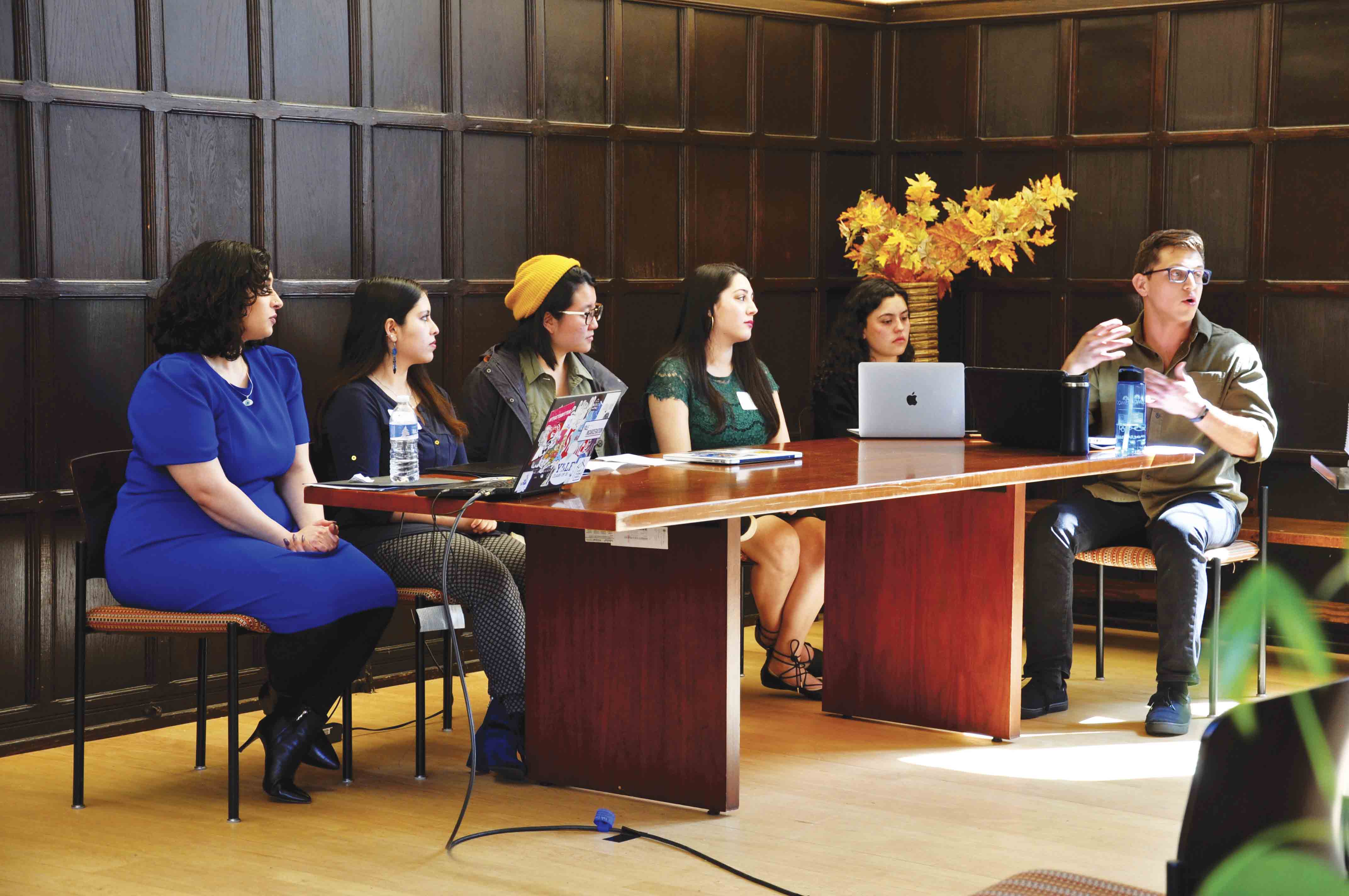
Harper Loonsk
Covering topics ranging from cultural appropriation of Native Hawaiians to the sustainability of Gullah basket weaving, the Ethnicity, Race and Migration Program at Yale hosted “Solidarity and Resistance: The Yale/Connecticut Undergraduate Ethnic Studies Symposium” — the first conference of its kind at the University or in the state — on Friday afternoon in the Afro-American Cultural Center.
Roughly 30 students from colleges across Connecticut gave short presentations over the course of the day on research they had done, often for their senior theses, concerning ethnic studies. Side panels also met throughout the day, including a spoken word presentation titled “The Latinx Rhetor in Profile” put on by students from Eastern Connecticut State University. Undergraduates from Connecticut College, Quinnipiac University, Wesleyan University, Central Connecticut State University, Eastern Connecticut State University, Fairfield University, University of Connecticut and Yale participated in the symposium.
Daniel HoSang, a professor of American studies and ethnicity, race and migration at Yale who helped coordinate the event, noted that the protests about diversity at Yale during the 2015–16 school year helped make events like the symposium possible and that, in general, “protest is often linked to program building and expansion of institutions.”
“It was just two years ago that there was all this student organizing and questions about climate, faculty and programs that Yale is able to host,” HoSang said. “To have such a collaborative event that shows all the great work happening shows that the administration invested significant resources in ER&M and the Center for the Study of Race, Indigeneity and Transnational Migration, and it makes possible things like this.”
The symposium took place on the 50th anniversary of the Third World Liberation Front strike for ethnic studies at San Francisco State University — which led SFSU to make ethnic studies an academic discipline — and the 20th anniversary of the ethnic studies major’s arrival at Yale.
Professor of American studies and ethnicity, race and migration Gary Okihiro, who gave the keynote for the symposium, commented on the history of ethnic studies in the American higher education system in his opening address.
“Ethnic studies … has survived for 50 years, despite constant efforts to diminish and extinguish it,” said Okihiro. “Beyond survival, ethnic studies thrives by advancing theory and practice as exemplified by third world studies, intersectionality and social formation.”
Students in attendance applauded the event coordinators’ efforts to create a centralized forum for ethnic studies, a field better established at West Coast universities, in Connecticut.
Nina Mesfin ’18, who was on the student organizing committee for the event and gave a presentation about “Preservation and Reclamation in Chicago‚ Äôs Ethnic and Racial Enclaves” as part of a wider panel about space and identity formation, said the most important part of the symposium for her was that it brought in presenters from across Connecticut. She added that she would like to see the conference turn into an annual event.
Shelby Michelle Williams, a junior at Central Connecticut State University, said the conference gave her an opportunity to engage with other research focused on the living experiences of “black and brown bodies.” Her presentation focused on racial institutions in the Afro-Arab diaspora.
“There is a lot of underfunded research when it comes to the living experience of the Afro-Arab people and there are atrocities going on towards black and brown bodies specifically of African descent in the Arab world,” Michelle Williams said. “Anti-blackness is the dominating factor in a lot of this research, and it’s because there’s a lot of international aggression towards black and brown bodies … This space was really successful in not only sharing the different perspectives of international struggles but to be in solidarity.”
Haylee Kushi ’18, who discussed the relationship between Asian appropriation of Kānaka Maoli identity and its role in “naturalizing Asian settler colonialism in Hawai’i,” said she wished that more people outside of the ethnicity, race and migration major at Yale attended the symposium, but that she did enjoy coming together with students from local state universities “given the context of ethnic studies starting in state institutions.”
Mesfin said she appreciated that the conference honored the principles of ethnic studies by exploring the ideas of solidarity and coalition building.
“Professor Okihiro raised the importance of ethnic studies’ radical roots,” Kushi said. “He reminds us that even though academic institutions may try to depoliticize or sanitize ethnic studies, we have it because of student power and protest at San Francisco State, and that studying POC histories in relationship to power always has politically important stakes and potential.”
The Yale Center for the Study of Race, Indigeneity, and Transnational Migration was established in February 2016.
Britton O’Daly | britton.odaly@yale.edu







